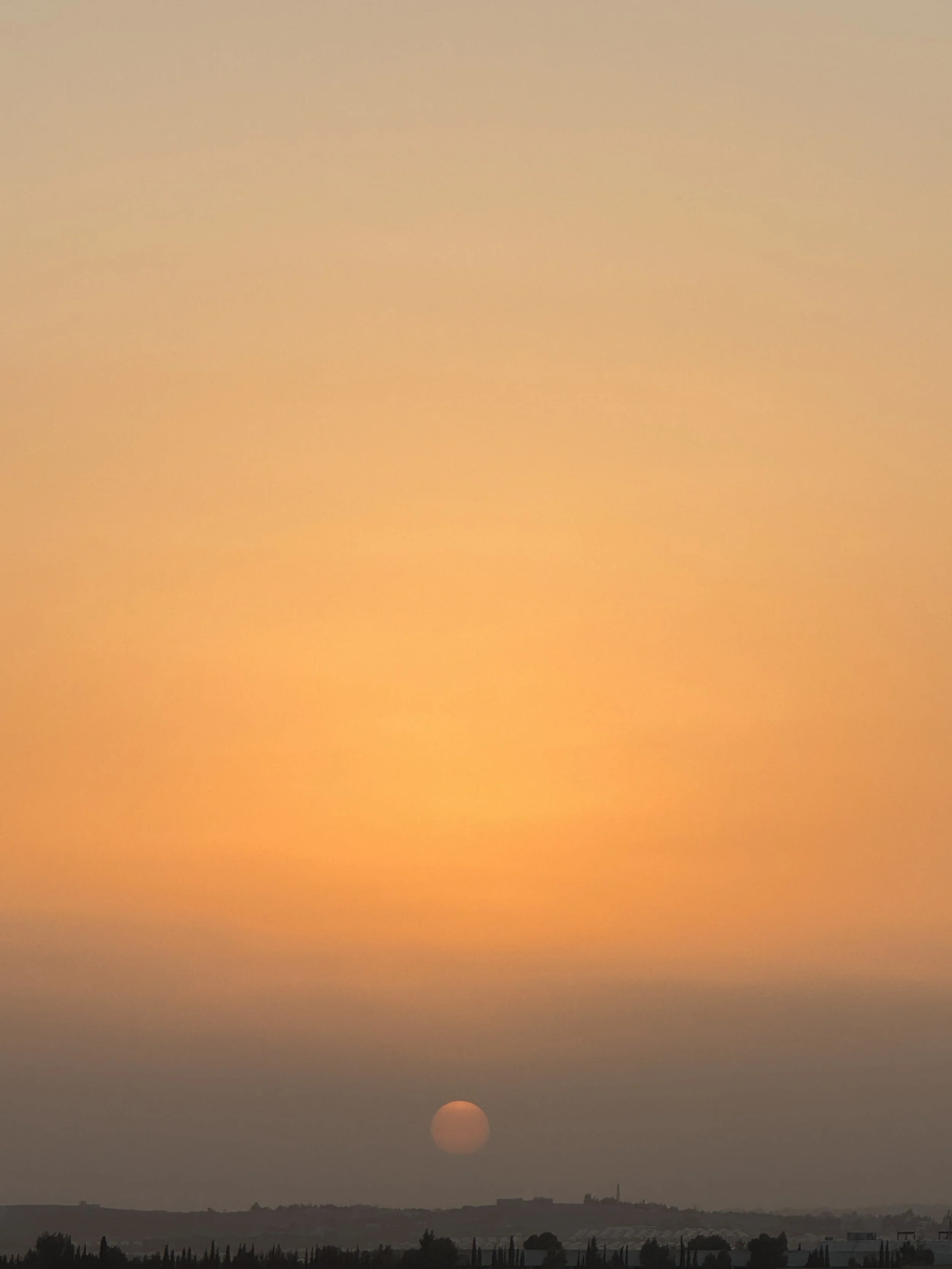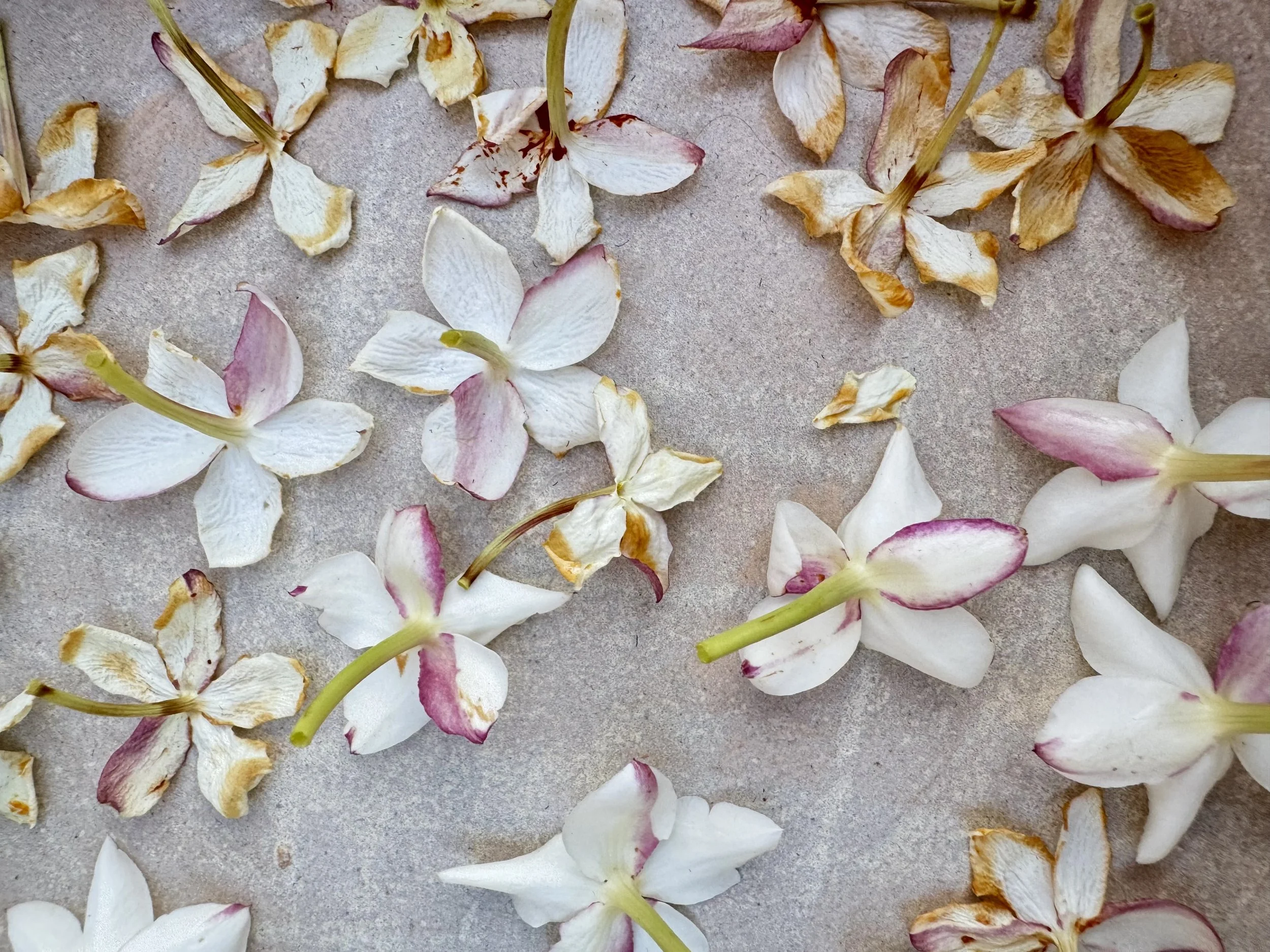July 2025
July in Jordan. We pass blistering days waiting for the relief of sunset and pastel skies, heralding the onset of cool desert nights. We gather in gardens where white jasmine blossoms unfold like stars. We feast on the bounty of the summer harvest: figs and stone fruits, watermelon and prickly pear.
At the same time, the weight of the suffering in Gaza has not hung this heavily over Jordan since the earliest days of the war, when the pain - and our proximity to it - left many of us shattered. Over the course of the past month, we witnessed a terrifying new dimension of the genocide: the onset of famine after five months of Israeli blockade. As forced starvation raged unabated, the intensity of those early emotions returned - the anger, the guilt, the helplessness. All residue of our continuous reckoning, consciously and unconsciously, with the inversion of our reality in Jordan against the reality of Gaza.
Looking back at July, it is a month that feels most clearly defined by moments we abstained from continuing with life as normal. Moments we accommodated the grief and the rage that we had grown accustomed to pushing away.
And so I’m writing this month’s newsletter about something we didn’t do. About a magical dinner - an embodiment and a celebration of Jordanian July - that was not held.
The event that I did not go to was developed by the brilliant Nahla Tabbaa, an interdisciplinary artist working across gestural drawing, ceramics, ecology, food and alchemy, alongside Bourtoqali, a regionally-focused F&B consulting studio. It was meant to be an intimate gathering celebrating “summer’s ripest trio: fig, tomato, and watermelon, explor[ing] their secret lives from seed to skin, flesh to leaf.” (I am borrowing here from the creators’ description of the event, as my own words could never capture the reverence, playfulness, and magic with which Nahla approaches her subjects).
In the days leading up to the dinner, the hosts approached attendees to ask their thoughts about going forward with the event. No context was needed: we had all seen the increasingly disturbing images coming out of Gaza, and by that point, had all no doubt felt the sense of nagging guilt over our unfettered access to food. The idea of rejoicing in it, even in the most thoughtful and intentional of ways, had begun to feel not only ethically questionable, but emotionally out of reach.
Rooting the decision in community and compassion - the creative source from which so much of her work seems to flow, Nahla postponed the dinner. It was the event I had most looked forward to all month, and yet its postponement brought a sense of relief. Above all, it reaffirmed my endless admiration for Jordan’s creative community: for their mindfulness, their sacred stewardship, their protectiveness and responsibility, and above all their humanity as they grapple with the challenge of conjuring beauty from a world that can be so ugly.
“Grief can be the garden of compassion. If you keep your heart open through everything, your pain can become your greatest ally in your life's search for love and wisdom.”
Rumi
Pictured above: My collection of jasmine blossoms which I collect each morning to dry and preserve.
If you’d like to learn more about Nahla Tabbaa and her work: https://nahlatabbaa.com/home


